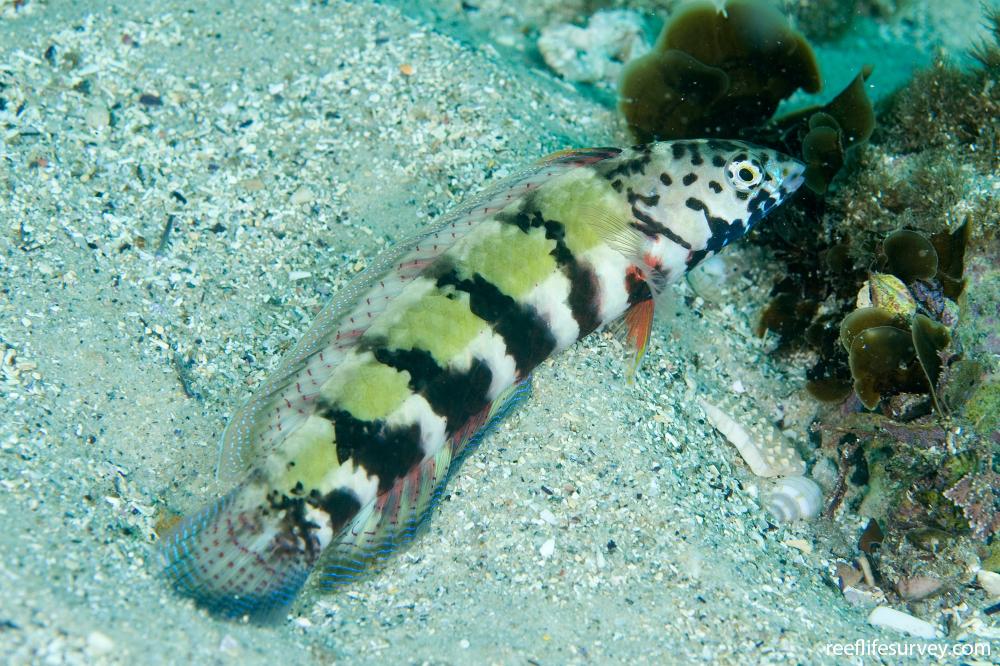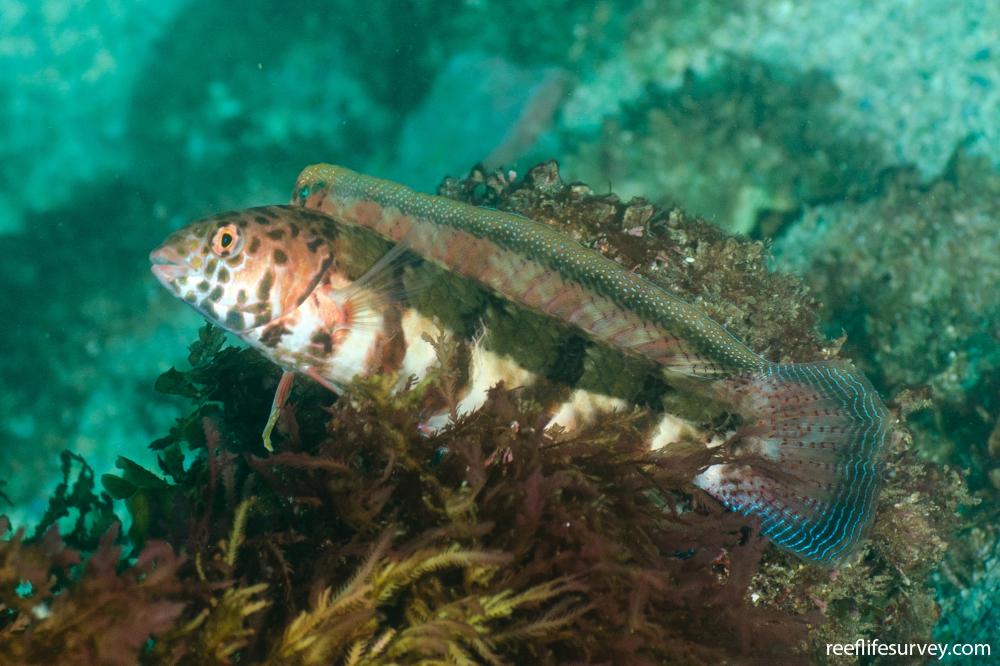Eupetrichthys angustipes
Snake-skin wrasseSimilar Species
Distribution
Temperate Australasia
Description
Quite similar to Castelnau’s wrasse, but has a more elongate body with the light-coloured belly abruptly darkening above, and with darker stripes down the sides. The two species also have similar swimming styles, moving in short bursts up from the bottom. When resting, the snakeskin wrasse lies on its side with head turned at an angle.
Information
Max Size: 12 cm
Sea Temperature Range: 13-24.6°C
Depth: 1-40 m
Habitat Generalization Index: 18.45
Also referred to as the SGI (Species Generalisation Index), this describes the habitat niche breadth of the species. Species with values less than 15 are found in a relatively narrow range of reef habitat types (specialists), while those over 25 may be found on most hard substrates within their range (generalists). Learn more here.
Conservation and Rarity
IUCN Status: Least Concern
Occurrence: Common (24.0% of sites)
Occurrence describes how often the species is found on surveys within its distribution. It is calculated as the % of reef sites surveyed by RLS divers across all the ecoregions in which the species has been observed
Abundance: Few (2 per transect)
Abundance is calculated as the average number of individuals recorded per RLS transect, where present.
Edit by: GJ Edgar. 2008. Australian Marine Life. New Holland, Sydney






